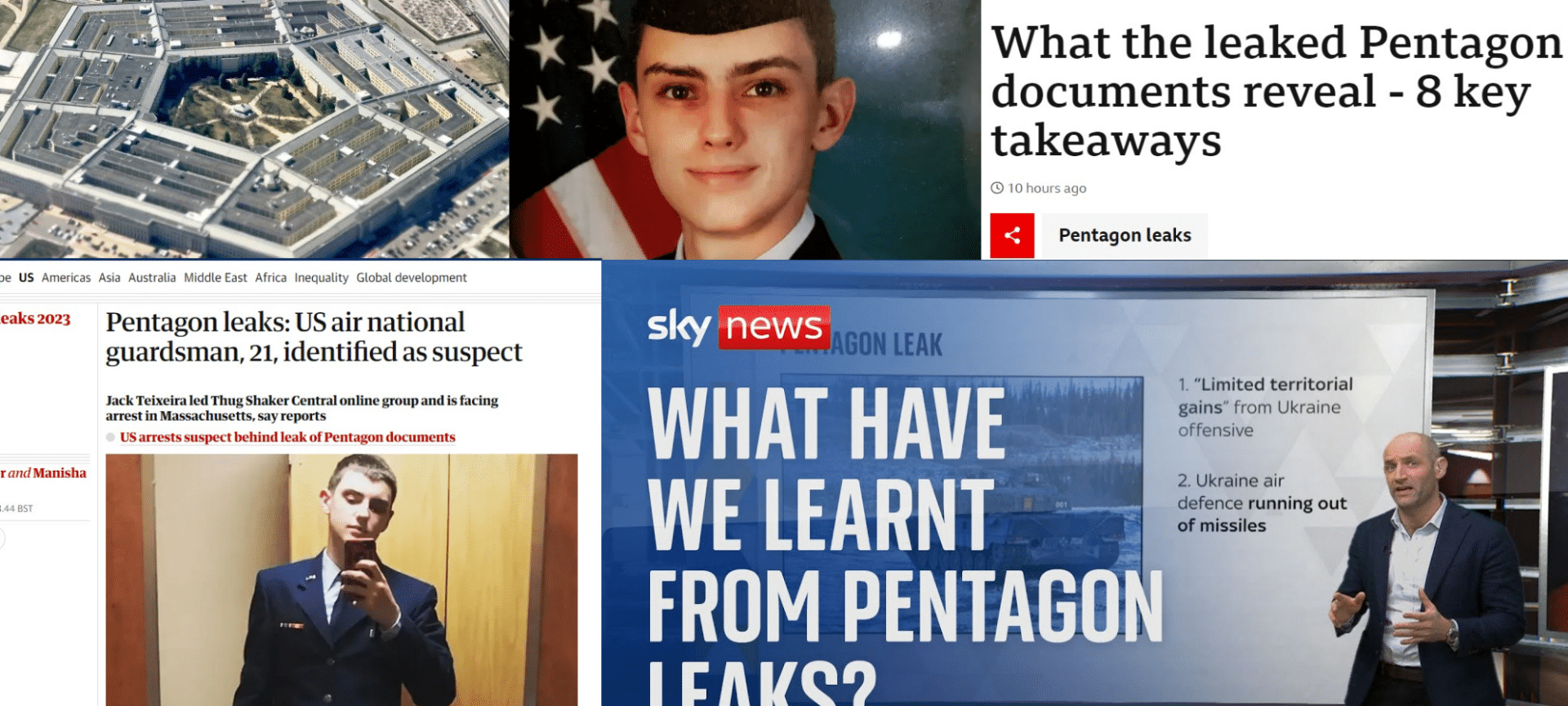We promised a longer take on the Pentagon “leaks”, and here it goes. Regular readers will probably be familiar with my view on leaked documents in general, but if you’re not allow me to quote my own 2019 article on the (absurd) “Afghanistan papers”:
An awful lot of modern “leaks” are no such thing. They are Orwellian exercises in controlling the conversation […] carefully making sure the “establishment” and the “alternative” are joined in the middle, controlled from the same source.
That’s not to say ALL “leaks” are automatically and ubiquitously narrative control exercises, clearly some are real…but it’s usually pretty easy to tell them apart. In fact here’s a little checklist.
1. If your “leak” tells you stuff you already know, it’s probably a fake leak.
“Leaking” widely known, publicly available information is a very common tactic. In the Pentagon “leaks”, for example, it was “revealed” that the US has been spying on South Korea, Israel and Ukraine. But the US spies on everyone – allies included – and we have all known that for literal decades.
Further, everyone spies on everyone, it’s just the way the game is played. Acting like it’s a big reveal, and the performative outrage of the South Korean government, is a hallmark of a fake leak.
2. If your “leak” reinforces the mainstream narrative, it’s probably a fake leak.
Leaks can be used to manage and/or reinforce the mainstream narrative. The Afghanistan Papers are, again, a prime example of this. The “secret history” which did nothing but repeat myths and lies about the US war.
Or the leaked Fauci emails, which resurrected the lab-leak theory of Covid’s origins, but reinforced that Covid existed and was dangerous.
3. If your “leak” gets MASSES of media coverage, it’s probably a fake leak.
A telltale sign of the fake leak is the mainstream media carefully explaining to everyone how important it is and what it all means. The BBC, Sky News, CNN and others have all put out explainer articles and videos detailing the content of the leaks. US spokespeople, like John Kirby, have said the press shouldn’t report on the leaks, but this has made no difference
We know the corporate media is just an extension of the Establishment, they only report what they’re told to report. They have no duty to the truth, and no ties to reality. If they publicise the leaks, it’s because they’re instructed to, because it serves the greater narrative. Officials criticising the press for publishing the “leak” is just a utilisation of the Streisand affect, textbook “please don’t throw me in the briar patch” stuff.
4. If your “leak” source is revealed immediately and publicly, it’s probably a fake leak.
Within days of the recent leak the press were reporting the name and rank of the alleged leaker, his arrest was filmed and the videos sent to the press, and he was arraigned in public. Is this how covert agencies bent on concealing important information operate?
For comparison’s sake, consider Seth Rich. Mr Rich was alleged to be the source of leaked emails which proved the DNC was rigging votes for Hillary Clinton. He died when he was shot in the back by muggers who didn’t take anything.
5. If your “leak” tells you what you want to hear, it’s probably a fake leak.
Never trust anyone who tells you only what you want to hear, that goes double for media outlets or government agencies.
In the most recent “leaks”, we see how they very conveniently feed both sides of the war narrative.
One of the “revelations” is that the Ukrainian military is running out of anti-air ammunition. Meaning that, in the near future, Russia could potentially flatten Ukraine with its air superiority.
This is, obviously and clearly, propaganda aimed at supporting the “Ukraine needs our help” storyline. It will be used to argue the West “has not done enough” to protect Ukraine and result in demands for more money and/or weapons to be sent over.
On the other hand the “revelations” concerning depleting ammunition stocks and higher-than-reported casualties provide, as well as the presence of NATO special forces in the country, fuel to the Western alternative media pro-Russia position.
Read the whole article here.


